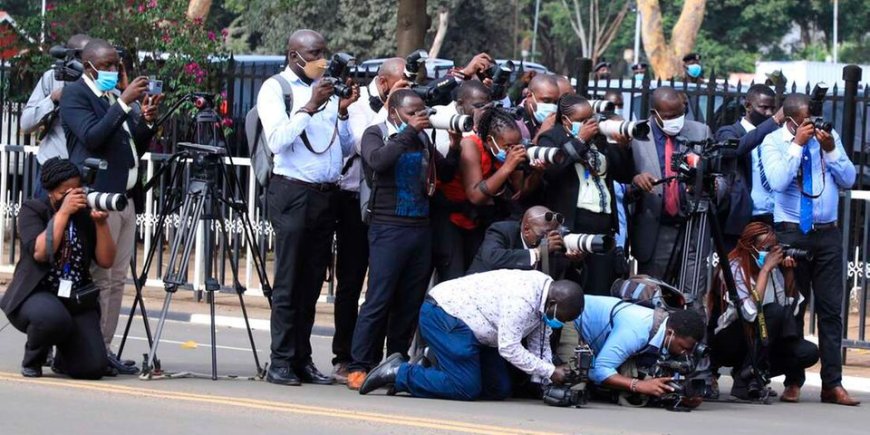Boycott Media Houses: Esther Passaris Urges Kenyans
The lawmaker particularly singled out Standard Group Limited and Nation Media Group, claiming they dislike the country and that their daily reporting screams being hellbent on seeing the country fall.

Nairobi Woman Representative Esther Passaris has sparked fresh controversy by now urging Kenyans to boycott media houses in the country.
Speaking in Nakuru during a National Government Affirmative Action Fund (NGAAF) meeting on Thursday, July 3, in a video that has now gone viral, Passaris accused media outlets of publishing and airing stories intent on destabilising the country.
The lawmaker particularly singled out Standard Group Limited and Nation Media Group, claiming they dislike the country and that their daily reporting screams being hellbent on seeing the country fall.
During the meeting, she opened up on a Bill she introduced, claiming President William Ruto did not know of its existence until learning of it via the internet.
Esther Passaris asks Kenyans to boycott media houses#ViralVideos pic.twitter.com/SpzqQhaE4z — Viral Tea Ke (@ViralTeaKe) July 4, 2025
"When I introduced the Private Members Bill, William Samoei Ruto did not know about it. He read it on the internet, but these gutter press outlets that we have, that we call Nation Media Group and Standard Media Group, they don’t love Kenya," she addressed.
Still, she called on members of the public to boycott all media houses and to cease purchasing or subscribing to newspapers that don't positively report on the current government.
"They want to make our country fall. I’m asking Kenyans to kindly boycott media houses. Don’t buy those newspapers that want to give you bad stories every day. They don’t want to report that the government is doing its work," she continued.
Her remarks come at a time when the media has faced government criticism over live streaming of the June 25 Gen Z anniversary protests, with the government, via the Communications Authority of Kenya (CA), responding by switching off signals of major TV and radio stations, that is, before the courts intervened.
The High Court, on the same day, granted conservatory orders putting the directive on hold after the Law Society of Kenya (LSK) contested its legality. At the latest court session on Wednesday, Justice Chacha Mwita extended these orders and set the next hearing for October 27. LSK is pushing for the directive to be completely nullified, arguing it violates the constitution.







